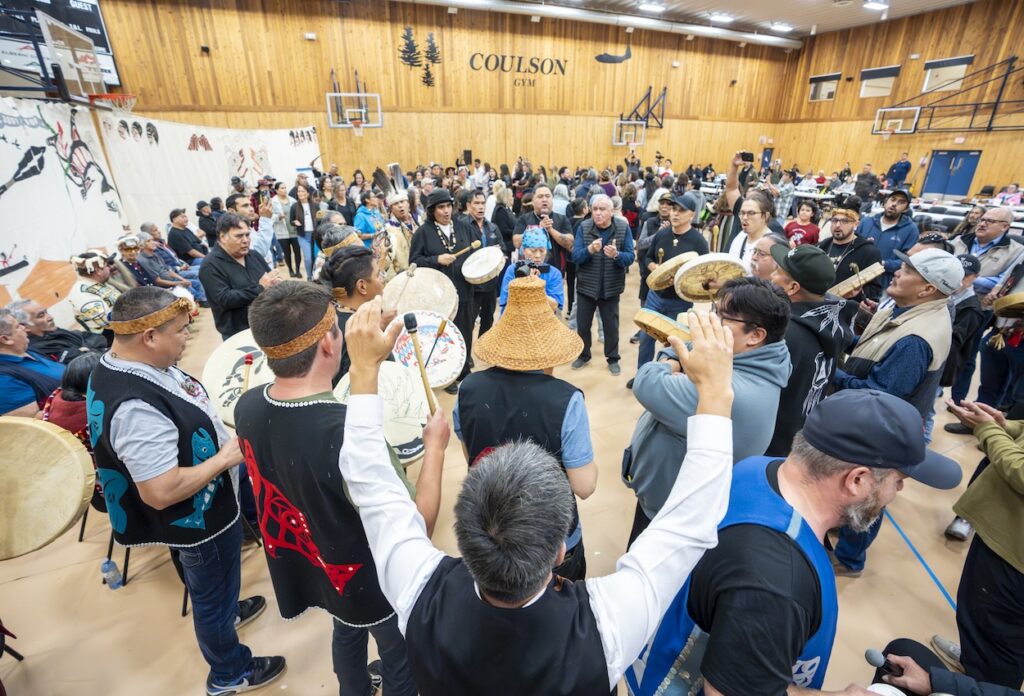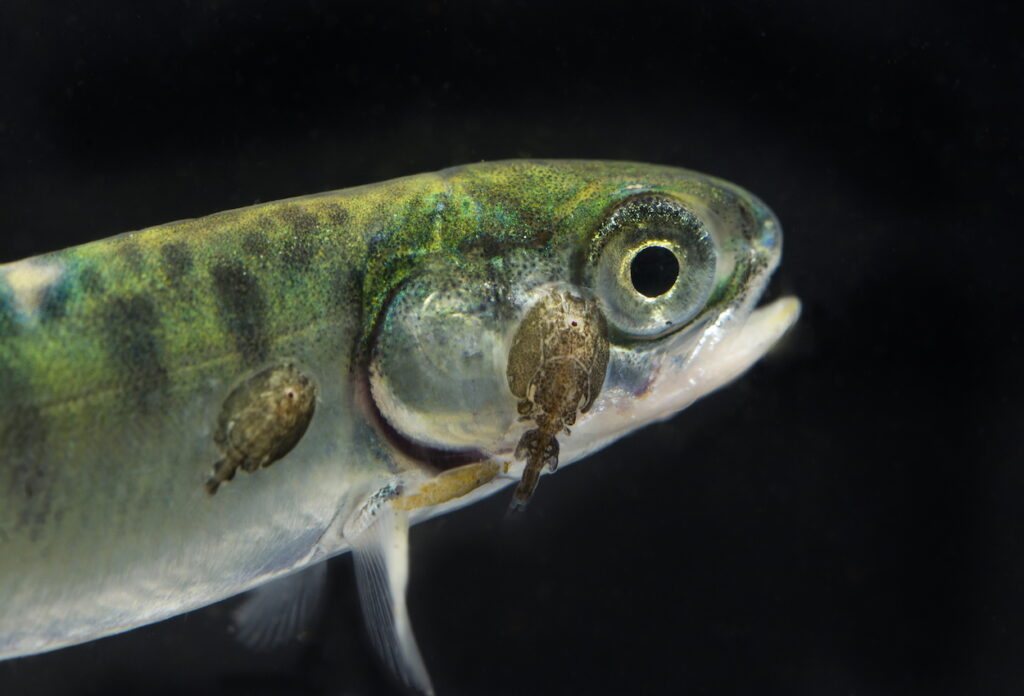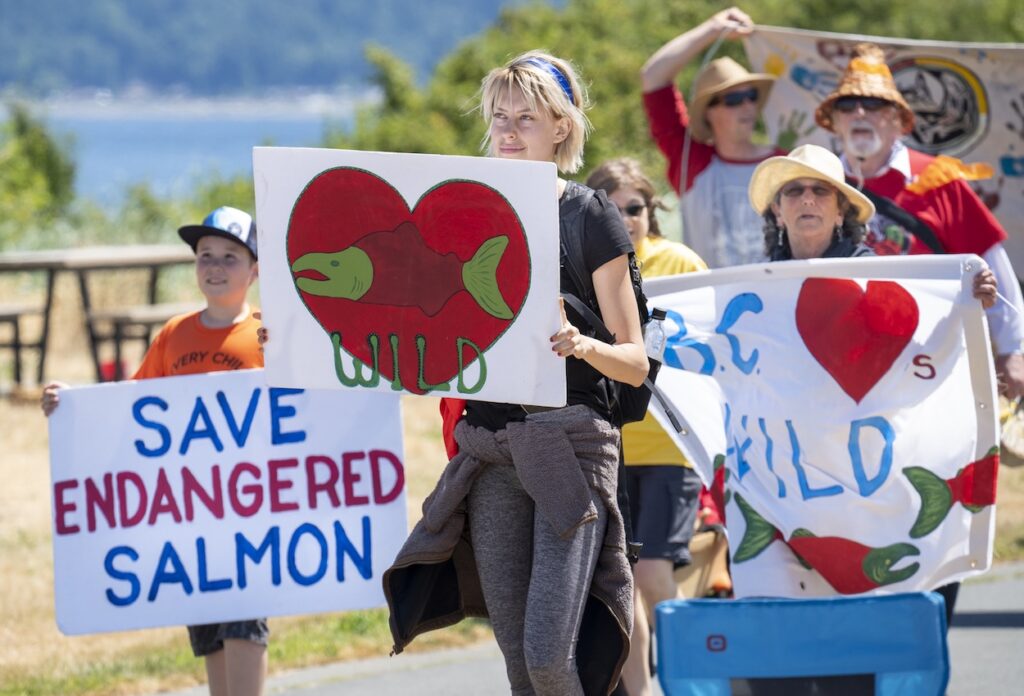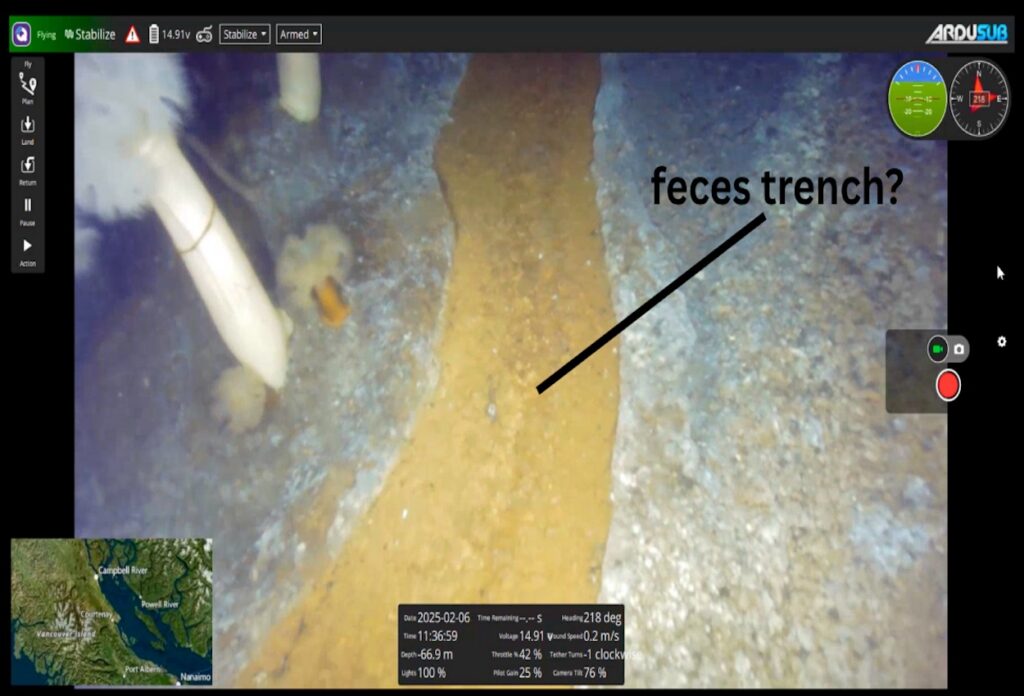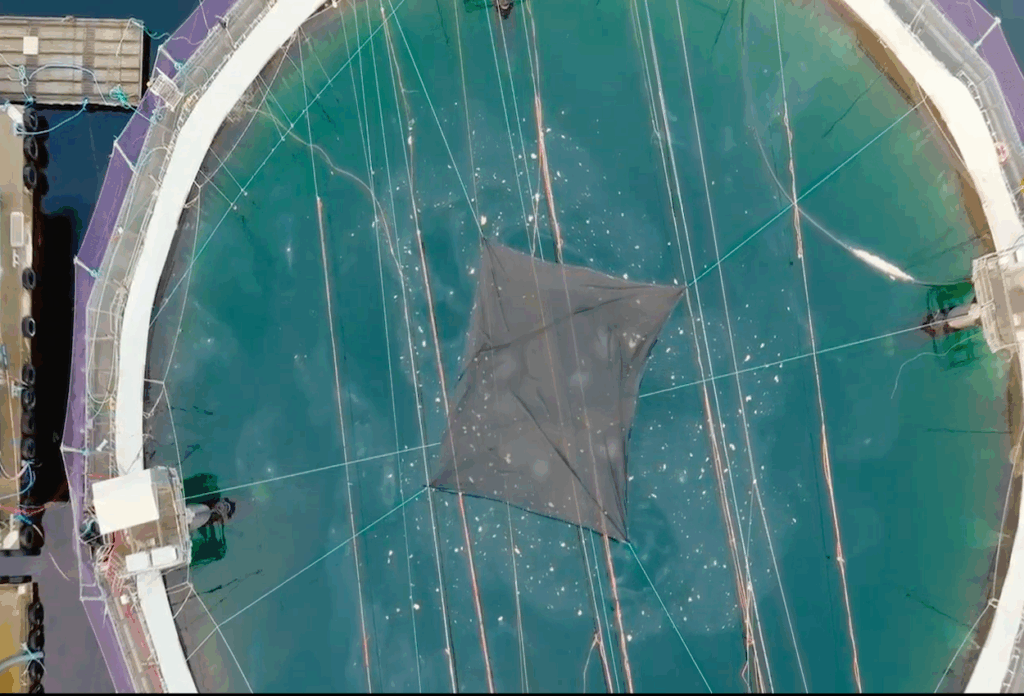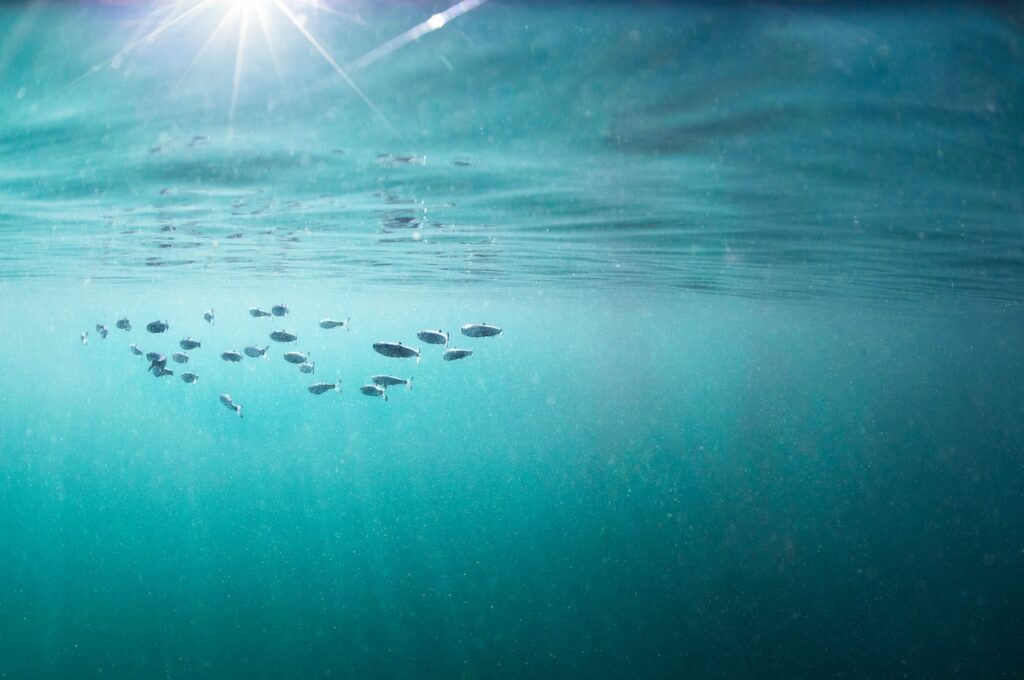In 2019, the federal Liberals promised to transition from open-net pen aquaculture by 2025.
Public mandate letters to successive Ministers reiterated that commitment. Then Covid intervened, stalling the work.
As society got back on track, this file proceeded very slowly, with most of the energy going into consultations. The result was a couple of ‘What We Heard’ reports…which basically found what we already knew: 70% of British Columbians and over 120 First Nations want salmon farms removed from BC waters, as promised.
Conflict of interest – DFO’s Aquaculture Management Division
The process is going so slowly because until now, it was being led by DFO’s Aquaculture Management Division. Way back in 2012, the Cohen Commission recommended that the Department of Fisheries and Oceans focus on protecting wild fish, and the management and promotion of aquaculture be moved to another Ministry, because there is an inherent conflict of interest. There’s no way the same Ministry could protect wild salmon while promoting salmon aquaculture, which harms wild salmon.
That recommendation was never implemented, which is why the transition is not going well for wild salmon. Except of course in places where the farms were simply removed, such as the Broughton Area, the Discovery Islands, and Sechelt Inlet.
Another 5 years of fish farm pathogens, parasites and pollution
Finally, 5 years after the promise was made, the federal government announced this June—wait for it—that they would ban open-net pen salmon farms: in another 5 years. Not by 2025 as promised, but by 2029. You could be forgiven for being cynical about this second iteration of the same promise—are they serious this time, or merely kicking the can down the road? And can wild salmon withstand another 5 years of pathogens, parasites and pollution? No answers on that from DFO.
In mid-September the feds finally released their Draft Transition Plan. What was presented was more of a “concept of a plan”. There are no clear steps to follow leading to a ban being in place on time, nor timelines.
So it might be good that the federal government is establishing a multi-Ministry Task Force to manage the transition. Perhaps it indicates that the feds are taking this transition seriously. We do know that several BC MPs laid it on the line for wild salmon—but even at that, this was the best that DFO could come up with.
Open-net pens banned in BC
The good part? There is clear wording around the fact that open-net pen salmon farms will be BANNED in BC waters as of 1 July 2029. Of course this was the promise made by the ruling Liberal government back in 2019. What would be different this time? Why should anyone believe the promise this time?
The key will be turning this policy/promise into regulation, by amending the Pacific Aquaculture Regulations. This is mentioned in the Draft Plan, but when questioned on the timeline for this regulatory change, DFO was unable to provide any details. There is some urgency here, as a potential federal election looms. What would happen to this 2029 fish farm ban is unknown, but the potential for a new government to toss all former government commitments is real…
Wild Pacific Salmon in dramatic decline
It will be key moving forward to keep eyes on the prize. The whole reason this transition is happening is the dramatic decline of wild Pacific salmon, and the clear linkages to salmon aquaculture as a key driver of this decline…
No doubt there are other factors—the climate crisis and clear-cut logging are mentioned frequently. The climate crisis is clearly challenging the survival of wild salmon. Our Clayoquot Salmon Investigation (CSI) missions regularly record water temperatures in the mid-teens, which was unheard of a decade or two ago. But if the climate crisis were driving the decline of wild salmon, we would expect to see similar declines across the region. But salmon runs in Clayoquot Sound are tanking, while 30 miles south, populations in Barkley Sound are still strong.
Habitat destruction from over-logging is also frequently mentioned. But here in Clayoquot Sound, there are quite a few intact unlogged watersheds. And we see the same dramatic declines in pristine valleys as the logged valleys…
The common denominator appears to be in-water salmon farming. The science could not be more clear.
Removing fish farms works
Just look what is happening since the removal of fish farms from the Brouthton Area and the Discovery Islands. The number of returning pink salmon is astounding! The pinks of the Hada River went from a low of 200 spawners to over 10,000 spawners—in one generation! The second generation since removal is now back, and the numbers continue to soar.
Some will say that before we can link the recovery of wild salmon to the removal of salmon farms, we would need to wait 5 generations—that is, 10 years for pink salmon. Well, 40% of salmon farms in BC have already been removed, and spawner numbers continue to increase dramatically. How much proof do we need before we take action? It’s a gamble either way—but if we fail to act, one result would be the loss of a keystone species.
Wild salmon can not wait
There is a sense of urgency around removal of fish farms. The loss of wild salmon in BC would be devastating, not just culturally for First Nations, but also economically. Not to mention food security—last year the Ahousaht First Nations leadership had to prevent their own members from fishing their own rivers to feed their families as they have done for millennia.
Time is running out for wild salmon. Last year only 7 Chinook spawners returned to the Upper Kennedy River—a huge watershed in Tla-o-qui-aht Tribal Parks. Clayoquot Action will continue to work with all Salmon People—members and leadership of local First Nations, as well as supporters far and wide—to continue to push for the removal of salmon farms as soon as possible.
If you haven’t done as much for wild salmon as you would like to, now is the time to take a stand. Wild salmon need a lot more people to get engaged and active. You can learn more and take action HERE.
Dan Lewis is Executive Director of Clayoquot Action.
